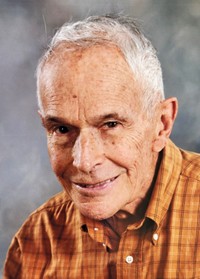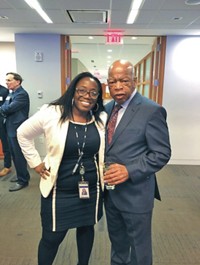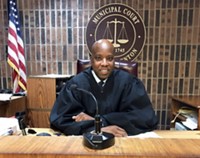Advertisement
Grab your lab coat. Let's get started
Welcome!
Welcome!
Create an account below to get 6 C&EN articles per month, receive newsletters and more - all free.
It seems this is your first time logging in online. Please enter the following information to continue.
As an ACS member you automatically get access to this site. All we need is few more details to create your reading experience.
Not you? Sign in with a different account.
Not you? Sign in with a different account.
ERROR 1
ERROR 1
ERROR 2
ERROR 2
ERROR 2
ERROR 2
ERROR 2
Password and Confirm password must match.
If you have an ACS member number, please enter it here so we can link this account to your membership. (optional)
ERROR 2
ACS values your privacy. By submitting your information, you are gaining access to C&EN and subscribing to our weekly newsletter. We use the information you provide to make your reading experience better, and we will never sell your data to third party members.
Nontraditional Careers
Career Ladder
Career Ladder: Charles Miller
This patent lawyer chose a path less traveled, from chemistry to a career advocating for intellectual property causes
by Marsha-Ann Watson
October 3, 2020
| A version of this story appeared in
Volume 98, Issue 38

1950s
Instilling curiosity
Charles Miller is the ultimate New Yorker; born and raised in the city, he has lived and worked in New York City his entire career. He was introduced to chemistry while working as a delivery boy for a local pharmacy. “Seeing all these chemicals on the shelves in the back room of the pharmacy . . . that’s what probably instilled in me a curiosity that I pursued,” Miller remembers. The pharmacists taught him about the basic principles of chemistry, and he watched as they mixed medicines using a mortar and pestle. He also nurtured his musical talents by studying the trumpet and performing with professional bands at an early age.

1960s
The trials of chemistry
After graduating from Brooklyn Technical High School, Miller studied chemistry at Columbia University. General chemistry proved difficult to absorb, but his organic chemistry professor was inspiring. “He whetted your appetite to study beyond what was being taught in the classroom.” As his studies advanced, Miller discovered that he “wasn’t crazy about lab work,” particularly after a lab accident mixing chlorosulfonic acid and benzene “caused burns on my arms, which I have to this day,” he says. As a graduate student at Columbia, he took a part-time position as a lab tech working for Gilbert Stork, and he developed “an appreciation for the experimental nature of chemistry.” In Stork’s lab he learned to prepare and synthesize organic compounds and focused on synthetic approaches to ring structures of tetracycline antibiotics. For most of graduate school, he was expecting a traditional career path in industry or teaching.
1970s–1990s
A different path
While wrapping up his PhD, Miller started thinking about other career options. A roommate at the time said, “Charlie, why don’t you become a patent lawyer?” Miller replied, “What’s that?” He took a class in patent law out of curiosity and discovered that was what he wanted to do. He began attending law school at New York University while working as a patent trainee at Allied Chemical. After graduating in 1970, he settled into a career as an associate at an intellectual property firm, working on cases that often involved license transfers and patent interferences, in which two inventors arrive at the same inventions separately and apply for patents. One of his memorable patent interference cases was the parallel inventions of catalysts that enable polymerization at room temperature by Nobel laureates Karl Ziegler and Giulio Natta.
Present

A return to tradition
After a lengthy career in patent law, Miller became a teacher, lecturing at St. John’s University School of Law on the art of persuasive arguments. He also established the Association of Amicus Council, a group of lawyers who voluntarily provide information in their fields of expertise to assist judges and legal officers on complex cases. “I’m lucky. I’m almost 80 years old, and most people my age have retired, but I can’t do that,” he notes. He enjoys his work too much. “And I hope to continue doing it until I lose my marbles.” Miller continues to work as a patent lawyer at Leichtman Law in New York and has also rediscovered his musical passion, putting away his trumpet in favor of the euphonium.





Join the conversation
Contact the reporter
Submit a Letter to the Editor for publication
Engage with us on Twitter